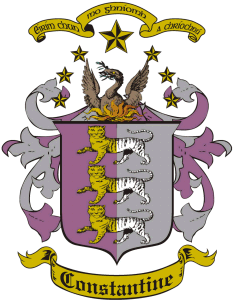|
.
The Constantine Institute |
.
Community Policing in Albany NY
|
 |
|
.
 The Constantine
Institute Community Policing in Albany, New York Beginning in the mid-1990s with Mayor Rudolph Giuliani's CompStat
program, which turned the New York City Police Department into an army of cops chasing dots on computer crime maps, this type
of statistics-driven policing has not only suppressed what had been a steady and positive evolution toward community policing,
but it has driven a wedge between the police and the community. At the state level in New York, we have Operation IMPACT.
It, too, uses statistics to identify and target dots. Only IMPACT dots are whole neighborhoods.
In correspondence I had recently with Mayor Dave Bing of Detroit, I reminisced about my experience in attending the 1992 annual conference of the International Association of Chiefs of Police in his city. From the moment I got off of my plane at the airport, where officers of the Detroit Police Department (DPD) had deployed as courtesy guides for visiting chiefs, I was struck by how many African-American officers the DPD had. They radiated pride in their city and their police force. Our conference registration package contained a gift from the Chief of the DPD, -- a big button bearing the slogan: The Unbeatable Team: The Police and the Community. And the Chief, Stanley Knox, an African-American, gave a memorable welcoming address in which he got everyone fired up with his department’s positive and upbeat slogan: The Unbeatable Team. I wrote to Mayor Bing, by the way, because things are not going so well in Detroit today. And this is why. It wasn’t too many years after that 1992 conference that I attended another IACP meeting at which the New York City Police Department introduced the nation’s police chiefs to the new CompStat program that had been created under the administration of Giuliani's first Police Commissioner Bill Bratton. The NYPD presentation drew a very big response. Chiefs were lined up outside the door. Extra sessions had to be hastily arranged. Little did I expect that this style of statistics- and technology-driven policing would go viral across the nation and eventually drive a wedge of separation between the police and the community, effectively breaking up “The Unbeatable Team.” It was the death of the community policing movement. Many cities, including Schenectady and Albany, today can point to significant and even dramatic declines in rates of crime. They attribute it to CompStat-like tactics. But in many, those numbers do not make people feel any safer and they do not make their police forces any more esteemed in distressed communities where the rubber meets the road. Mayor Richard Daly of Chicago, for example, has publicly expressed his great frustration in recent weeks in this seeming paradox. More pervasively, young people in the neighborhoods that have the most to gain by more effective law enforcement and decreased crime are not at all interested in careers in the public safety professions. The answer to the problem is to spark a resurgence of the community policing movement. In Albany, New York, the leadership team of the Albany Police Department was keenly aware of the disconnect between the statistical performance of the police department over recent years and public confidence in the department and the general feeling by people in the community that crime continued to be a problem not on the way to a satisfactory solution. In a period of just over a year, the department's management team, from which the current Police Chief Steve Krokoff was recently selected and confirmed, resolved to engage with the community to build a consensus and a partnership to mitigate, if not terminate, this disconnect. The Albany Police Department's Report on Community Policing has been made public. The Constantine Institute compliments Chief Krokoff and his team for the fine work they have done in creating this plan for action and change. Good things are happening in the Capital of the Empire State. Among them is the beginning of a resurgence of the long-stymied community policing movement. Albany is on its way to establishing an unbeatable team, the community and the police. Follow this link to the full report of the Albany Police Department on its work toward developing and implementing a Community Policing Plan for Albany.  |

